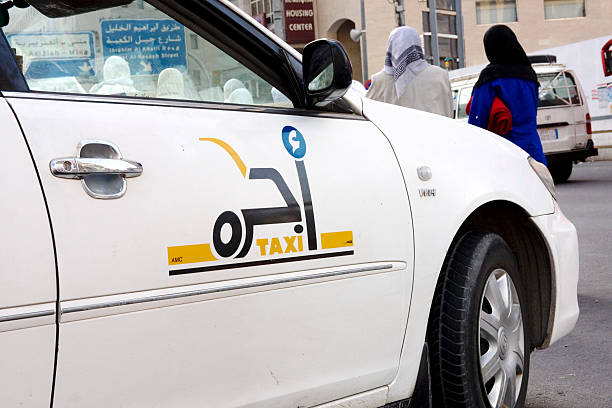Madinah to Makkah is an important pilgrimage route for millions of Muslims worldwide, making taxi services indispensable in traversing this distance. Pilgrims, locals, and tourists rely heavily on taxi services as a form of public transit. Therefore, a fair and transparent fare system must be implemented before 2024. Specifically, this article explores strategies and interventions which could be implemented to ensure a fixed Taxi Fare from Madinah to Makkah, which promotes equity, transparency, and sustainability.
The introduction will offer an overview of the Madinah-Makkah route and highlight its significance, focusing on taxis’ role in aiding pilgrims and visitors in travel between these holy cities. A fixed Taxi Fare from Madinah to Makkah system should also be implemented to provide affordability and transparency to all stakeholders.
Influencing Taxi Fare from Madinah to Makkah
This section will examine the factors driving taxi fares between Madinah and Makkah to fluctuate. These include fuel costs. Distance travelled between locations, demand-supply dynamics and operational costs – each affecting fare fluctuations.
Understanding the Current Taxi Fare Structure
Here, we will examine the existing taxi fare structure, highlighting its flaws and inconsistencies. Furthermore, this section will shed light on the difficulties of determining fares due to the lack of standardized pricing models and regulatory frameworks.
Challenges Facing the Current Taxi Fare System in London
This part will address the difficulties experienced by passengers and taxi operators due to the unpredictable fare system, including fare disputes, lack of transparency and no grievance mechanism in place.
Technological Interventions to Regulate Taxi Fare
This section will examine how technology can be utilized to streamline and regulate the taxi fare system, with discussions centring around fare calculation apps, GPS-based estimation tools and digital payment solutions as means to enhance transparency and reliability.
Implement Fair Fare Policies by 2024
This segment will propose strategies to implement fair fare policies by 2024 and highlight the necessity of collaboration between regulatory authorities, transportation agencies and taxi operators to establish an equitable yet affordable standardized fare structure.
Authorities and Taxi Operators Join Forces
Here, we will highlight the significance of cooperation between regulatory authorities and taxi operators to ensure the successful implementation of fixed taxi fares. Open communication and collaboration to understand fare regulations are highlighted here.
Fixed Taxi Fare Benefits for Passengers and Drivers
This section will describe the benefits of fixed taxi fare systems for passengers and drivers, with particular attention paid to how a transparent fare structure can foster customer satisfaction, promote driver accountability, and ultimately create a more reliable and efficient transportation system.
Transparency and Accountability in Fare Calculations
This part will highlight the need for transparency and accountability in calculating taxi fares. The discussion will revolve around clearly outlining fare components and providing passengers with comprehensive fare breakdowns for every journey.
Feedback Mechanisms for Continuous Improvement
This segment will address the importance of creating efficient feedback mechanisms to gather insights from passengers and taxi operators. Customer feedback is essential in identifying potential areas for improvement and driving continuous enhancements of fare systems.
Surmount Resistance to Change in Fare Regulations
Here, we will address potential resistance from various stakeholders to implementing fixed fare regulations. In particular, strategies will be discussed for overcoming resistance through effective communication, stakeholder engagement and showing long-term benefits from standardizing fare systems.
Impact of Fixed Fare Policy on the Taxi Industry and Local Economy
This section will examine the broader effects of a fixed fare system on the taxi industry and local economy, particularly its impact on market competitiveness, business sustainability and the growth of overall regional economic activity.
Taxi Operators and Regulators Voice Concerns for Change
This section will address the concerns and apprehensions of taxi operators and regulatory bodies regarding a transition to a fixed fare system and specifically address how comprehensive support mechanisms, training programs, and policy frameworks can ensure a smooth transition.
Transportation Solutions That Promote Sustainable and Equitable Development
Here, we will highlight the significance of sustainability and equity when developing transportation solutions. This section will highlight how important it is to balance passenger, operator and environmental needs to create a practical yet eco-friendly transportation system.
Conclusion
To conclude the article, we will summarize its key points and emphasize its significance for the pilgrimage experience, local economy and overall transportation infrastructure. We will emphasize its potential positive effect.
Read More: Taxi From Madinah to Makkah
















+ There are no comments
Add yours